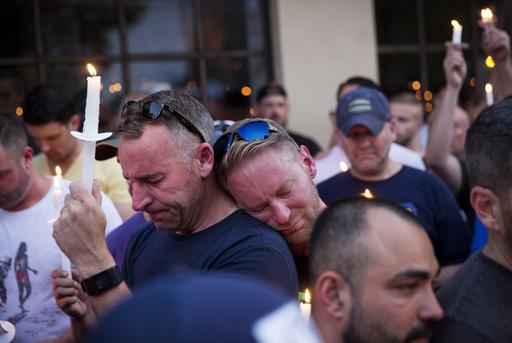We have televisions running on the cable networks throughout the day here in our office. So I get an immersive read on the conversations of the day, which today of course are about the horrific mass shooting in Orlando. As is so often the case, it is striking how much of the chatter is tied up with trying to put these mass murders into some convenient and simple bucket. Mental illness? Radical Islam? Homophobia? The product of readily available guns? It can be a cop-out to simply say all of the above. But listening to these conversations I’m left hoping that our counter-terrorism and law enforcement professionals have a more sophisticated grasp of these incidents than our political class.
What we seem to know about Omar Mateen was that he was prone to violence and extreme anger, bigoted toward various minority groups, seemingly including gays and moderately religious. We also know that in the final hours of his life, before he began his spree, he had the presence of mind to find a channel of communication he knew would be preserved and declare his allegiance to ISIS.
This is not a generic act. It follows ISIS’s specific instructions to lone wolf attackers. They’re actually encouraged not to reach out to ISIS leaders about their attacks. (That’s just a good way to get caught.) The instructions are to make the public announcement of allegiance before the attack so as to be included as a ‘ISIS fighter’, albeit only known posthumously.
‘Mental illness’ gets thrown around very casually in these contexts. The limited evidence we have now suggests someone with serious anger management issues, someone who beat his spouse and frequently verbally attacked minorities and made off-hand comments about violence, though not on this scale. Some of these traits may sustain various clinical diagnoses. But they are also widespread in society, found in many men (overwhelmingly men but not exclusively) who are living lives which seem broadly integrated into society.
Most of these men never act out in ways the public finds out about. They may never act out at all, though I suspect that spousal violence is the most common channel for acting out on these impulses. But clearly for a subset of these alienated, aggressive men, usually but not always from a Muslim family background, ISIS and al Qaeda ideology provides a thought structure, a rationale, an imagined community into which to pour this kind of penchant for aggression.
It seems highly noteworthy to me that Mateen chose a gay nightclub. Yes, Islamic radicals are deeply hostile to gay men. They’ve acted on that hostility in brutal ways in the ISIS zone. But based on what limited information we have from his father, coworkers and perhaps his ex-wife suggests a more Western brand of anti-gay hostility.
Some people suggest that all of the above means that this isn’t really about jihadism at all. Mateen simply used ISIS as a cover or justification for an act of mass violence rooted in his own aggression, mental instability and perhaps homophobia. But that’s too facile argument, too easy a way to Americanize this into another mass shooting and wall it off from incidents like Paris and various kinds of terrorist mass violence in the Middle East. We have seen too many similar examples to see this as merely a figleaf. With Mateen we see someone ripe for the plucking for extremist ideology. But would he have done this if there wasn’t an ISIS having created a ready-made recipe, mindset and narrative of heroic justification into which to pour these tendencies? Maybe. We’ve certainly seen guys shoot up abortion clinics or just shoot up their own schools. But I think it’s much, much less likely that he would have.
People are looking for a channel to justify, understand, direct their aggression and violence. But the kind of nihilistic jihadist radicalism emanating out of ISIS is a really, really tall slide. You build up a lot of speed, momentum and force.
So human nature, angry younger male aggression, a readily available narrative of radicalization rooted in familial history encouraging mass casualty attacks, almost totally unrestricted access to firearms. From everything we know now it’s all of the above. But one and two are simply part of the human condition, as much an issue one hundred or one thousand years ago as they are today.
As I would like to discuss in another post, this is as much the Islamicization of radicalism as it is the radicalization of Islam. But we can’t simply dismiss it as extremism which exists in equal measures in all religions. At this historical moment that is clearly not the case. In other periods of history, sure. But not today.






